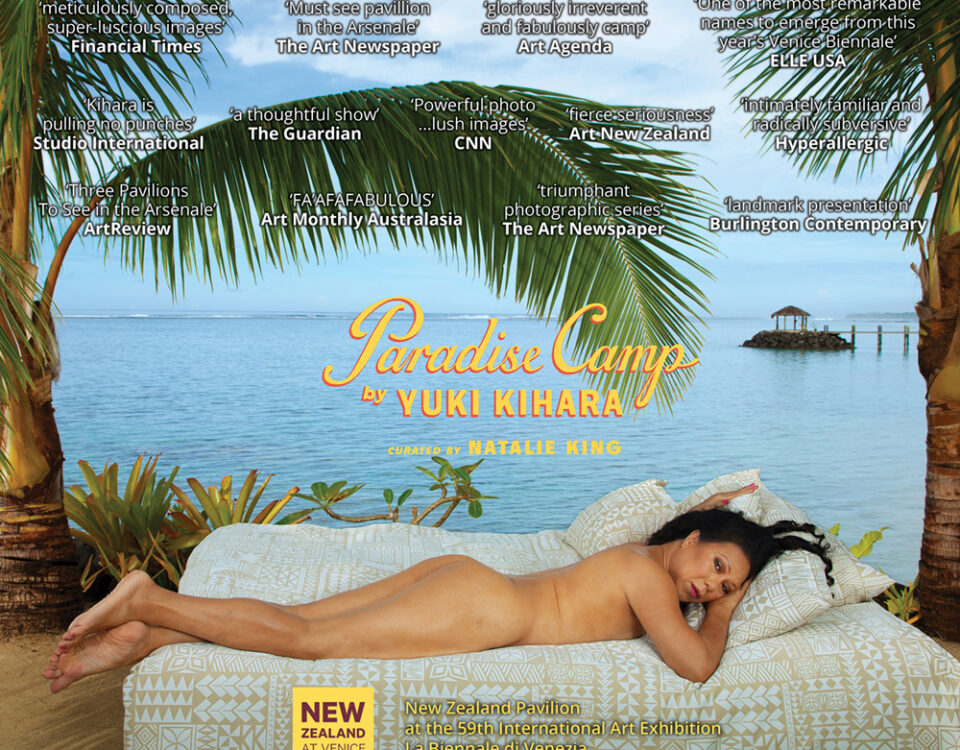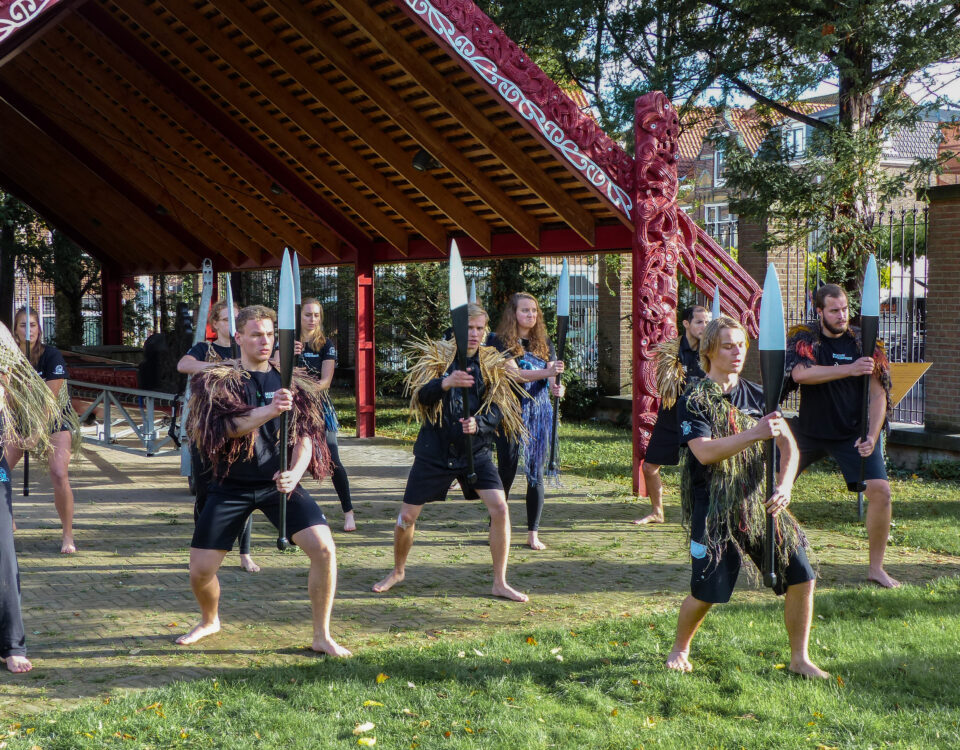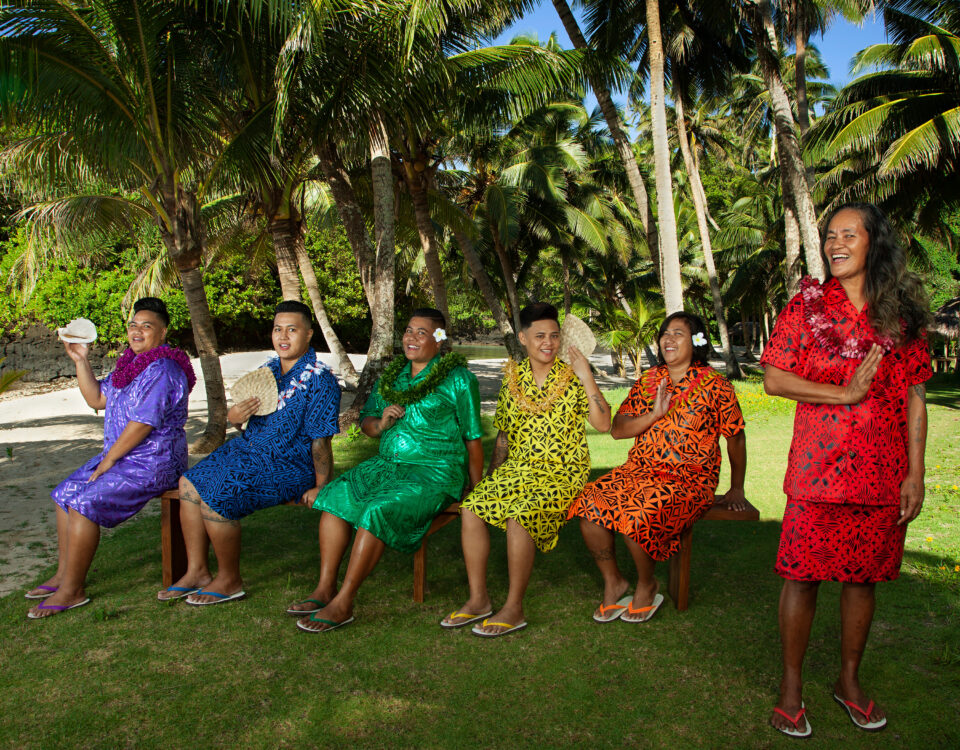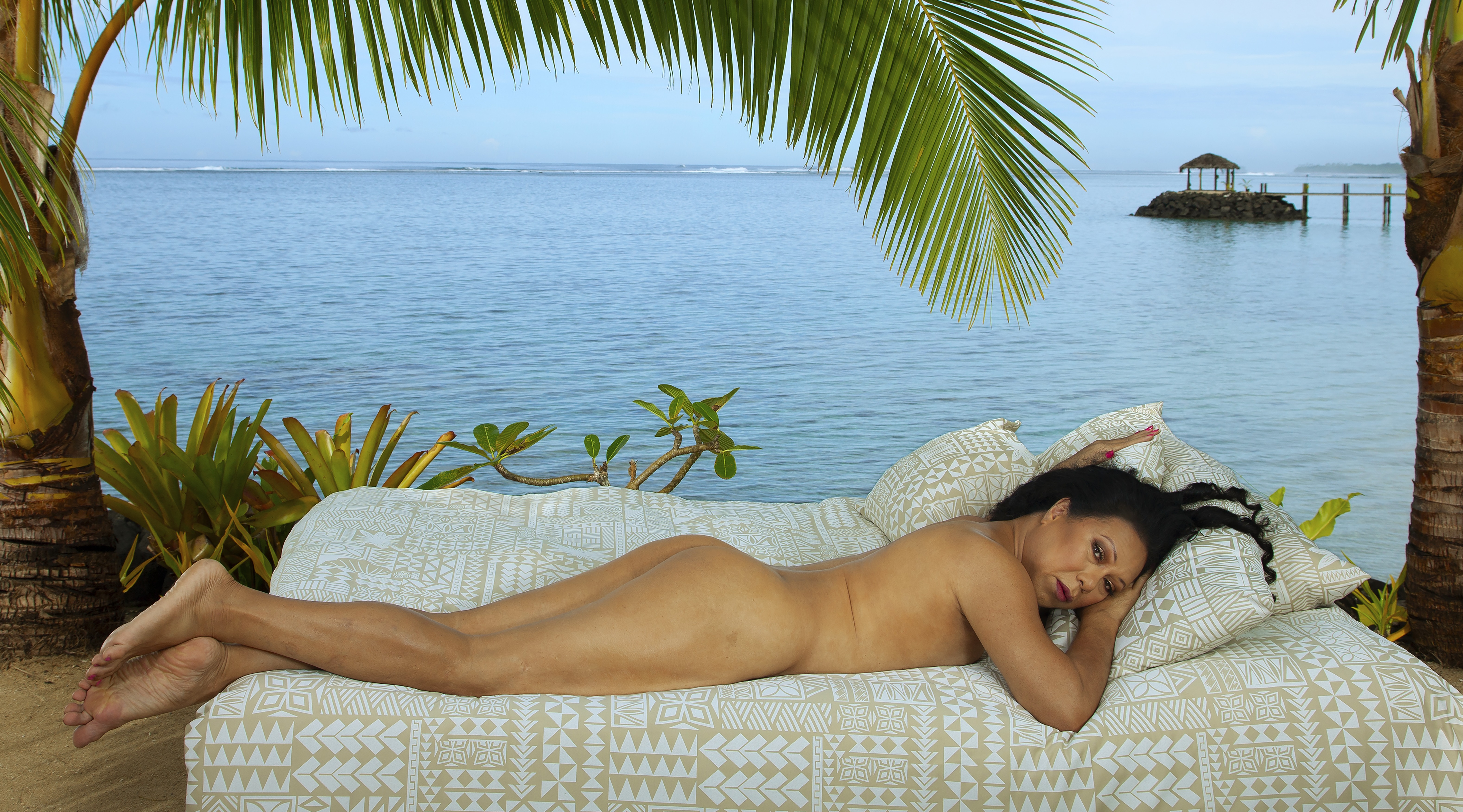
OCULA: Yuki Kihara’s Paradise Camp
May 2, 2022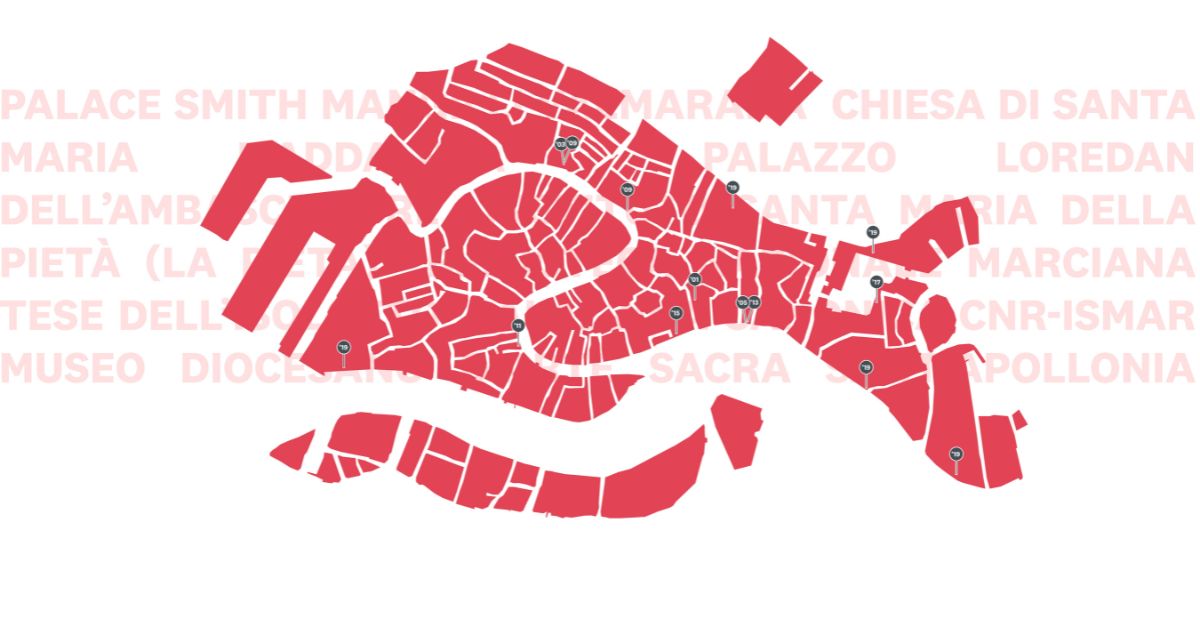
Creative New Zealand reviews participation at Biennale Arte
June 3, 2022The Guardian: Fa’afafine Yuki Kihara celebrates Samoa’s third gender: ‘Galleries think they can tick the box with me’
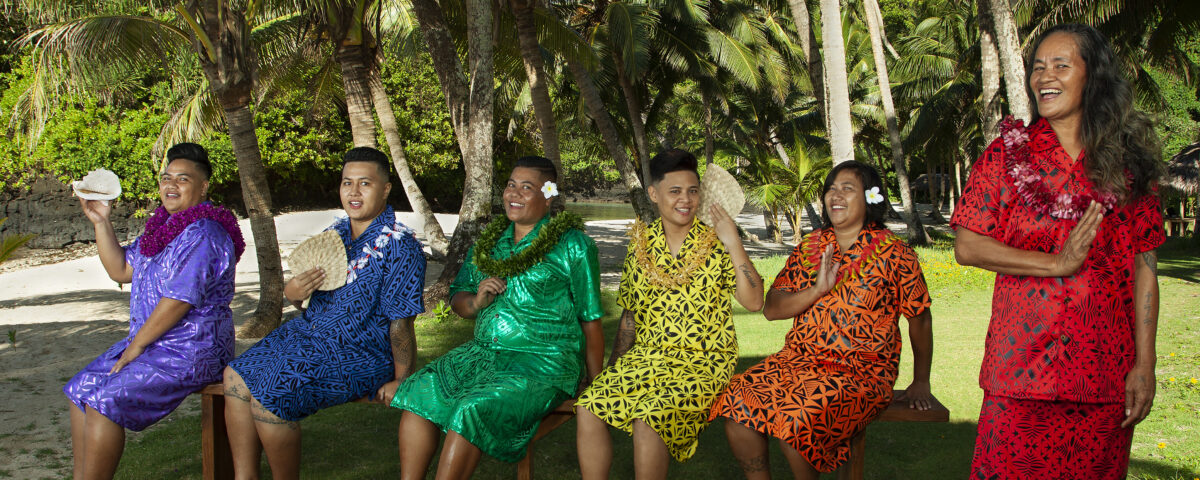
Genesis 9:16 (After Gauguin), 2020. Image courtesy of Yuki Kihara and Milford Galleries, Aotearoa New Zealand.
Ahead of the opening of Paradise Camp, Yuki Kihara talked to The Guardian about how it feels to be representing New Zealand at the Venice Biennale; building Fa’afafine capital; the disconnect between the representation and reality of Sāmoa, and more:
Representing New Zealand at the Venice Biennale, the Samoan-Kiwi artist is foregrounding Samoa’s fa’afafine and transgender communities, and the climate crisis hidden from tourists.
Kihara says, “The idea of nationalism is something I constantly question, because these borders are man-made for the purpose of the generation of economy, security, and privilege,” she says. “But I do feel that being given this honour to represent a country is very humbling, and the fact that I’m using the New Zealand pavilion to talk about a Samoan story is even more special.”
Paradise Camp dissects the disconnect between the representation and reality of Samoa. This can be seen in the imagery that’s frequently used to market Samoa overseas: despite tourism being one of the country’s primary industries and a major employer of fa’afafine, gender diversity disappears in the glossy brochures. The climate crisis is also erased. “It always features white heterosexual couples that are just recently married, and they’re holding hands, walking alongside a sunset on a beach that’s really clean,” Kihara says.
She pushes the picturesque landscape to a surreal, camp extreme, asking viewers to look behind the beautiful facade to villages affected by erosion, rising sea levels, and increasing natural disasters, to the point where local television stations repeatedly run announcements explaining what to do when the siren goes off.
“This notion of ‘paradise’ masks the realities of living in Samoa, and environmental crisis is part of that because it’s part of our daily life,” Kihara says.
For all its prestige, Venice is just a stepping stone, before Paradise Camp eventually returns to its geographic origin and spiritual home.
Read the interview in full here on The Guardian’s website.

